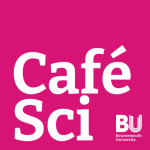Discovering equations, laws, or invariant principles underpins scientific and technical advancement. Robust model discovery has typically emerged from observing the world and, when possible, performing interventions to falsify models.
Recently, data-driven approaches like classic and deep machine learning are evolving traditional equation discovery methods. These new tools can provide unprecedented advances in computer science, neuroscience, physics, philosophy, and many applied areas.
We have just published a new study discussing concepts and methods on causal and equation discovery, outlining current challenges and promising future lines of research. The work also showcases comprehensive case studies in diverse scientific areas ranging from earth and environmental science to neuroscience.
Our tenet is that discovering fundamental laws and causal relations by observing natural phenomena is revolutionised with the coalescence of observational data and simulations, modern machine learning algorithms and domain knowledge. Exciting times are ahead with many challenges and opportunities to improve our understanding of complex systems.
This study is a collaborative work between eight universities in Europe and the United States (Valencia, Berlin, Tübingen, Jena, Stockholm, New York, and Bournemouth Universities).
Camps-Valls, G., Gerhardus, A., Ninad, U., Varando, G., Martius, G., Balaguer-Ballester, E., Vinuesa, R., Diaz, E., Zanna, L. and Runge, J., 2023. Discovering causal relations and equations from data. Physics Reports, 1044, 1-68 (Impact Factor=30).
 INRC seminar by Dr Jie Sui, Friday the 8th of September at 14.00 h, Share Lecture Theatre (Fusion).
INRC seminar by Dr Jie Sui, Friday the 8th of September at 14.00 h, Share Lecture Theatre (Fusion). Café Scientifique Tuesday 1 Dec – Discovering the World’s First Farmers
Café Scientifique Tuesday 1 Dec – Discovering the World’s First Farmers










 REF Code of Practice consultation is open!
REF Code of Practice consultation is open! BU Leads AI-Driven Work Package in EU Horizon SUSHEAS Project
BU Leads AI-Driven Work Package in EU Horizon SUSHEAS Project Evidence Synthesis Centre open at Kathmandu University
Evidence Synthesis Centre open at Kathmandu University Expand Your Impact: Collaboration and Networking Workshops for Researchers
Expand Your Impact: Collaboration and Networking Workshops for Researchers ECR Funding Open Call: Research Culture & Community Grant – Apply now
ECR Funding Open Call: Research Culture & Community Grant – Apply now ECR Funding Open Call: Research Culture & Community Grant – Application Deadline Friday 12 December
ECR Funding Open Call: Research Culture & Community Grant – Application Deadline Friday 12 December MSCA Postdoctoral Fellowships 2025 Call
MSCA Postdoctoral Fellowships 2025 Call ERC Advanced Grant 2025 Webinar
ERC Advanced Grant 2025 Webinar Update on UKRO services
Update on UKRO services European research project exploring use of ‘virtual twins’ to better manage metabolic associated fatty liver disease
European research project exploring use of ‘virtual twins’ to better manage metabolic associated fatty liver disease